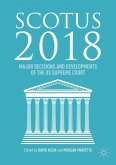This book explains why the role of corruption varies greatly between public services, between people, between national systems of governance, and between measures of corruption. More than 1.8 billion people pay the price of bad government each year, by sending a bribe to a public official. In developing countries, corruption affects social services, such as health care and education, and law enforcement institutions, such as the police. When public officials do not act as bureaucrats delivering services by the book, people can try to get them by hook or by crook. The book's analysis draws on unique evidence: a data base of sample surveys of 175,000 people in 125 countries in Africa, Asia, the Middle East, Europe, and North and South America. The authors avoid one-size-fits-all proposals for reform and instead provide measures that can be applied to particular public services to reduce or eliminate opportunities for corruption.
"This volume by Rose and Peiffer offers a welcome political science perspective. ... Any text co-authored by Richard Rose will command respect given his colossal contribution to political science and public studies. This book does not disappoint. ... Bad Governance and Corruption will soon be on the reading list of all courses examining corruption. It will easily warrant the attention of researchers and students alike for the statistical material offered and the clarity of the authors' analysis." (Neil Collins, European Political Science, Vol. 18(4), 2019)








